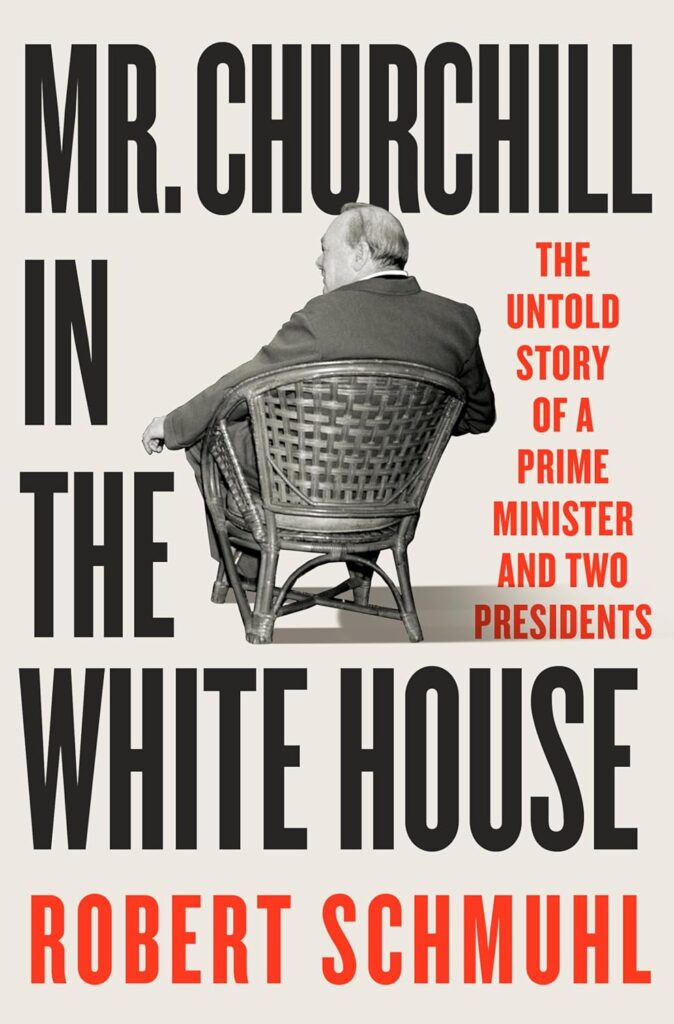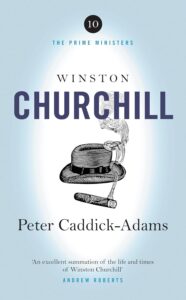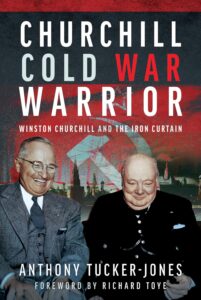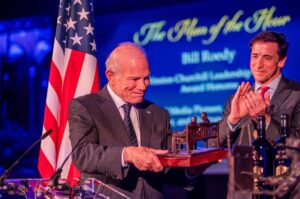Bulletin #194 — Jul 2024
The Man Who Came to Stay

To view in full, right click and choose "View in New Tab"
July 7, 2024
Robert Schmuhl, Mr. Churchill in the White House: The Untold Story of a Prime Minister and Two Presidents, Liveright, 2024, 384 pages, $32. ISBN 978–1324093428
Review by Alastair Stewart
Robert Schmuhl, author of Mr. Churchill in the White House, has annoyed me. What was meant to be a casual week-long read transformed into a captivating all-nighter flipping through the pages of a book I never knew I needed.
The subtitle, The Untold Story of a Prime Minister and Two Presidents, is slightly misleading. The presidents in question are Franklin D. Roosevelt and Dwight D. Eisenhower, whose presidencies coincided with Churchill’s time as prime minister between 1940 and 1945, and again in 1952 and 1953.
But Schmuhl touches on legacy as much as the particulars of Churchill’s administrations; his international post-war celebrity overlapped with serving as opposition leader and later roving elder statesman. The chilly but never quite cold relationships with Harry S. Truman and even John F. Kennedy were comparably diminishing returns for the Special Relationship and Churchill personally. Lyndon B. Johnson controversially did not attend Churchill’s funeral in 1965.
So, what makes this book so riveting? Schmuhl has reminded audiences on both sides of the Atlantic that Churchill is more than a mononym and that the “special” Anglo-American relationship still matters. Mr Churchill, the house guest, might seem an unusual way to frame this argument, but there he is, in all his glory.
From 1941, the British prime minister was either a prince or a pauper as he risked the wartime Atlantic to press the flesh at 1600 Pennsylvania Avenue. No biography has so wholly focussed on the trips to Washington of which Churchill himself would furtively invite himself and stay for weeks on end—all in the national interest, of course.
Roosevelt and Churchill exchanged hundreds of messages and met for four days in Newfoundland in August 1941. By the time Churchill was bound for America on December 13, 1941, the “infamy” of Pearl Harbor had taken place six days before. He did not return to London until January 17, 1942. The prime minister took five stateside trips during the war for in-person consultations with Roosevelt and stayed at the White House four times. The two leaders spent 113 days together between 1941 and 1945 discussing the course of the war and its global aftermath.
Schmuhl takes glee in underlining how Churchill, despite the odds hanging on his style of diplomacy, could not abandon a patrician entitlement. Roosevelt and Eisenhower eventually adjusted to the unconventional habits and hours of their famous White House guest, while others did not.
Schmuhl contextualises the days Churchill spent with Roosevelt and Eisenhower, respectively. The years of research are palpable, and he vividly portrays the reactions of inner-circle characters to Churchill being, well, Churchill. The reality of foreign policy formation will be a stark wake-up call for those who think it is always conducted officiously and during set hours. One is favourably reminded of Cita Stelzer’s wonderful Dinner with Churchill: Policy-Making at the Dinner Table, not least of all, as the delivery of alcoholic beverages to Churchill’s quarters in the White House “wore a path in the carpet.”
Having Churchill as a guest in the Rose Bedroom of the White House meant that the Monroe Room was converted into a map room to display the movement of troops and ships. His secretaries set up workspaces in the Lincoln Study. It is clearly a minor miracle that Eleanor Roosevelt was not a more resentful host of the British prime minister than she was. Ultimately, this led to the First Lady prompting the establishment of Blair House as the official guest house of the president. Churchill never stayed there.
But let us cut to the chase. Is that incident true? Churchill indeed used naked diplomacy to shock and awe. Stepping out of a bath and meeting the US president is a rich part of Churchillian folklore, never mind the White House. Schmuhl’s detailed testing, validation, and debunking of the story’s permutations is a testament to the book’s overall research credentials and will not disappoint.
Schmuhl is just as discerning of his hosts. The Roosevelts and their staff are not treated with deferential veneration: at times, they come across as entitled gatekeepers as much as Churchill unfairly expects the White House to run to his schedule. Eisenhower is painfully translucent about the commutable condition of Churchill and Britain’s post-war state. “Winston,” who, though “charming and interesting as ever,” has become noticeably older with his thinking and is “unquestionably influenced by old prejudices or instinctive reaction….Winston is trying to relive the days of World War II.”
Whether during the Second or Cold Wars, Churchill risked making those long and often dangerous trips overseas because he understood the importance of the “free world, with all its power and might.” He also knew that the twentieth century would be American. Churchill was born during the presidency of the 18th chief executive, Ulysses S. Grant, and died during the presidency of the 33rd, Lyndon B. Johnson. No other guest made such use of access to the Oval Office and what we might call guestpolitik. Churchill was never a snake oil salesman knocking at the front door, but he was shrewd, and it is for the reader to decide just how nefarious he is at getting what he wants.
Niche lines of inquiry relating to Churchill range from the parochial to the impractically broad. Schmuhl has succinctly articulated a nexus of events in Washington, and it is a magnificent springboard to delve into how the Anglo-American alliance and the habits of one infrequent house guest shaped the Western world.
The White House hotel enjoyed many guests of status and import, but none were more effective than Churchill operating from the Rose Bedroom in the Executive Mansion. If Schmuhl presses ahead with an adapted television documentary, as well he should, one hopes he advocates for the title “When Mr Churchill Came to Stay.”
Alastair Stewart is Chair of ICS Scotland.
Subscribe
WANT MORE?
Get the Churchill Bulletin delivered to your inbox once a month.






